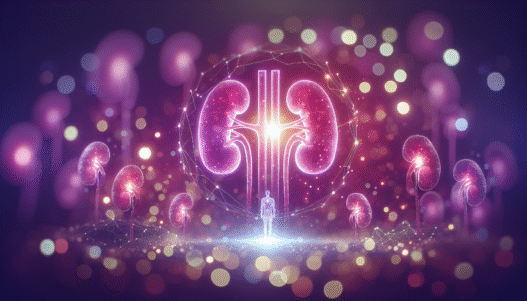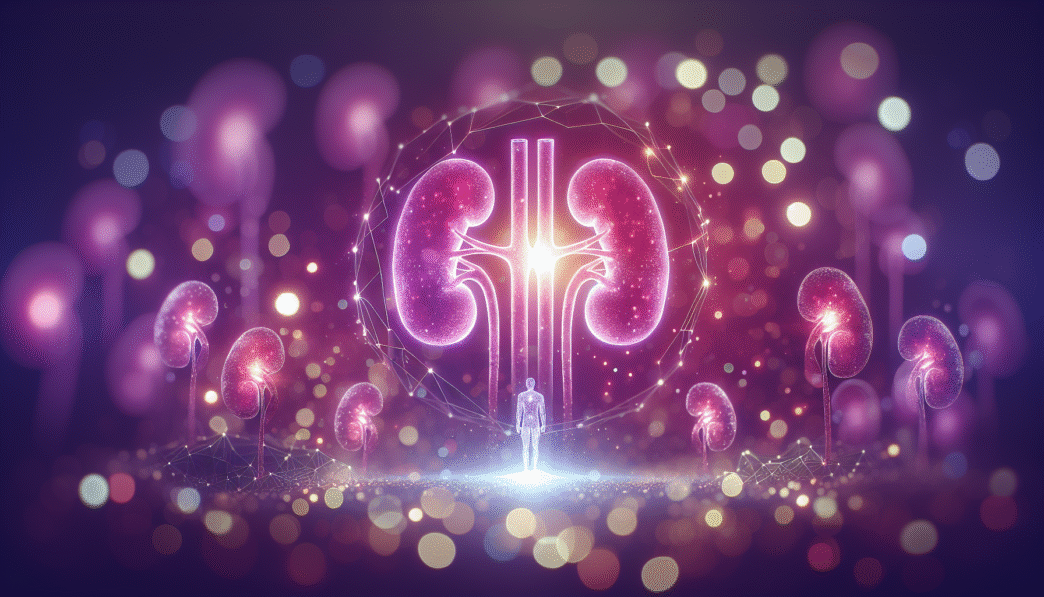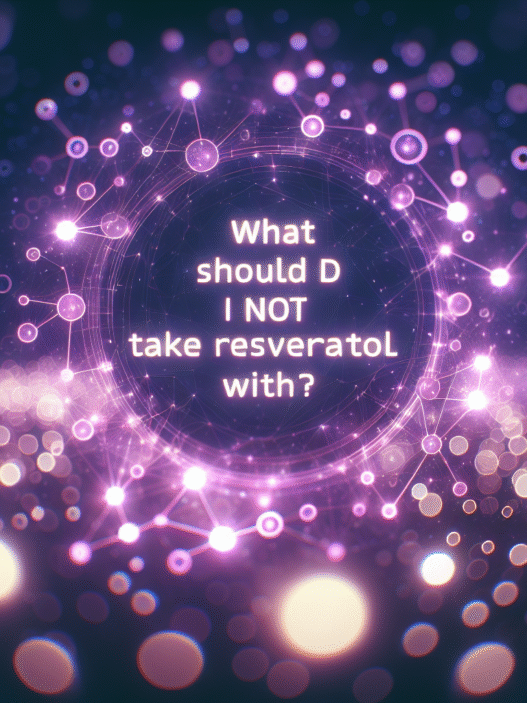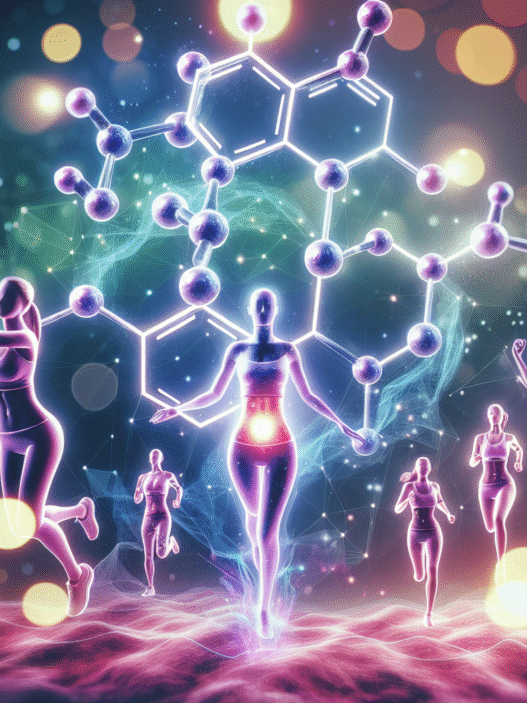Resveratrol and Kidney Health
Resveratrol is a polyphenol compound primarily found in grapes and berries. Its potential health benefits have attracted interest, particularly regarding kidney health. The following sections explore the safety and benefits of resveratrol for renal function.
Understanding Resveratrol
Resveratrol’s properties include antioxidant, antidiabetic, and neuroprotective effects. These characteristics make it a promising candidate for exploring its nephroprotective effects, which may significantly contribute to kidney health. Research indicates that resveratrol can play a multifaceted role in reducing oxidative stress and inflammation in the kidneys.
Kidney Protection Mechanisms
Resveratrol has been studied for its ability to protect kidney cells and tissues from damage. Treatment of renal epithelial cells with resveratrol has been shown to significantly reduce oxidative stress caused by various factors, thus preventing conditions that might lead to kidney dysfunction. In particular, resveratrol effectively prevents epithelial-to-mesenchymal transition (EMT) and fibronectin production, processes linked with fibrosis and renal damage (PubMed Central).
Additionally, resveratrol’s ability to decrease reactive oxygen species (ROS) production in kidney fibroblasts suggests its effectiveness in addressing tubulointerstitial fibrosis. This type of fibrosis can lead to chronic kidney disease, highlighting the importance of resveratrol in potentially mitigating renal complications (PubMed Central).
Resveratrol has also been documented to lessen the nephrotoxicity risk associated with certain drugs, including cisplatin, a common chemotherapy agent. By offering protective benefits against nephrotoxicity, resveratrol may serve as an important ally for those undergoing treatments that pose risks to kidney health (NCBI).
Here’s a summary table of resveratrol’s effects on kidney health:
| Mechanism of Action | Effects |
|---|---|
| Antioxidant properties | Reduces oxidative stress, enhancing cell survival |
| Epithelial protection | Prevents EMT and fibronectin production |
| Fibrosis reduction | Decreases NOX4 and α-SMA levels, combats tubulointerstitial fibrosis |
| Nephrotoxicity mitigation | Protects against cisplatin-induced kidney damage |
The exploration of whether resveratrol is safe for kidneys? is still ongoing, but the evidence points towards its potential as a protective agent in kidney health.
Effects of Resveratrol on Diabetes
Resveratrol has exhibited potential benefits for individuals dealing with diabetes, specifically in the areas of glycemic control and metabolic syndrome management.
Glycemic Control Improvement
Research indicates that resveratrol supplementation can lead to notable improvements in glycemic control among patients with type 2 diabetes mellitus. A systematic review and meta-analysis highlighted that those taking resveratrol experienced better blood glucose levels (Nutrition Research).
The effectiveness of resveratrol in enhancing glycemic control lies in its ability to modulate key cellular signaling pathways. It influences glucose metabolism and insulin resistance by engaging SIRT1/NF-κB/AMPK pathways, leading to an improved overall metabolic profile and reduced diabetic complications (PMC).
The following table summarizes the effects of resveratrol on glycemic control:
| Parameter | Change Observed |
|---|---|
| Fasting Blood Glucose Levels | Decreased |
| HbA1c Levels | Decreased |
| Insulin Sensitivity | Increased |
Metabolic Syndrome Management
Resveratrol has also shown significant promise in managing metabolic syndrome, a cluster of conditions including hypertension, high blood sugar levels, excess body fat around the waist, and abnormal cholesterol levels. A systematic review and meta-analysis demonstrated that resveratrol supplementation markedly improves lipid profiles and liver enzymes in individuals with metabolic syndrome and related disorders (Lipids in Health and Disease).
Moreover, resveratrol has been found to enhance endothelial function, which is particularly important for maintaining healthy blood vessels and reducing blood pressure. This antioxidant has been shown to lower systolic blood pressure in older, overweight subjects, further supporting its role in combating metabolic syndrome.
The following table details the observed effects of resveratrol on metabolic syndrome:
| Parameter | Effect |
|---|---|
| Lipid Profile | Improved |
| Liver Enzymes | Reduced |
| Endothelial Function | Enhanced |
| Systolic Blood Pressure | Decreased |
Considering these findings, individuals interested in natural health and holistic wellness may explore how resveratrol fits into their diet. For further insights on the benefits of resveratrol, check out our article on what are the benefits of taking resveratrol?.
Resveratrol’s Impact on Blood Pressure
Resveratrol has garnered attention for its potential effects on cardiovascular health, particularly concerning blood pressure regulation. Here, we delve into how resveratrol influences systolic blood pressure and its role in nitric oxide production.
Reduction in Systolic Pressure
Systolic blood pressure is the pressure in the arteries when the heart beats. High systolic pressure can be a significant risk factor for heart disease, especially as individuals age. Studies have shown that resveratrol supplementation can enhance endothelial function and significantly lower blood pressure in individuals with metabolic syndrome and related disorders (High Blood Pressure & Cardiovascular Prevention).
The table below illustrates the average reduction in systolic pressure observed with resveratrol supplementation:
| Study | Average Systolic Pressure Reduction (mmHg) |
|---|---|
| Randomized Controlled Trials | 4-8 |
This indicates a noteworthy impact on blood pressure, suggesting that incorporating resveratrol may contribute to better cardiovascular health.
Nitric Oxide Production
One of the mechanisms through which resveratrol lowers blood pressure is by increasing the production of nitric oxide. Nitric oxide is a molecule that helps relax and widen blood vessels, thereby reducing the pressure exerted on artery walls during heartbeats (Healthline). This function is essential for maintaining healthy circulation and overall cardiovascular wellness.
The increase in nitric oxide production has several benefits, including:
- Improved blood flow
- Lowered resistance to blood flow
- Enhanced nutrient delivery to tissues
Given its potential benefits for heart health, those looking to optimize their blood pressure management might find resveratrol to be a valuable addition to their regimen. For those interested in the broader implications of using resveratrol, consider exploring the benefits of taking resveratrol or learning about potential adverse effects found in long-term usage.
Resveratrol and Antioxidant Properties
Reduction of ROS Generation
Reactive oxygen species (ROS) can lead to oxidative stress, which has been associated with various health issues, including kidney disease. Resveratrol plays a significant role in reducing ROS generation. Research indicates that treatment with resveratrol significantly decreases oxidative stress in renal epithelial cells caused by agents such as cisplatin, high glucose, oxalate, and TGF-β1. This reduction in oxidative stress happens as it leads to a decrease in mitochondrial superoxide and overall ROS production (PubMed Central).
The effectiveness of resveratrol in combating oxidative stress can be illustrated through the following table:
| Condition | Effect of Resveratrol |
|---|---|
| Cisplatin-induced oxidative stress | Reduced ROS production |
| High glucose environment | Lowered ROS levels |
| Oxalate exposure | Minimized oxidative impact |
| TGF-β1 stimulation | Diminished ROS |
This ability to mitigate ROS generation is crucial for protecting kidney health and ensuring the proper functioning of cells.
Antioxidant Enzyme Enhancement
In addition to reducing ROS, resveratrol enhances the activities of antioxidant enzymes in the body. Experiments show that resveratrol treatment leads to improved antioxidant enzyme activities that combat oxidative stress. This action is mediated through various signaling pathways, such as AMPK/SIRT1/Nrf2 and ERK/p38 MAPK, which are vital for inducing the synthesis of antioxidant enzymes (PMC).
The following table summarizes the key antioxidant enzymes enhanced by resveratrol:
| Antioxidant Enzyme | Role in the Body |
|---|---|
| Superoxide dismutase (SOD) | Converts superoxide radicals to hydrogen peroxide |
| Catalase | Breaks down hydrogen peroxide into water and oxygen |
| Glutathione peroxidase | Reduces hydrogen peroxide levels within cells |
By boosting the natural defense mechanisms of the body, resveratrol not only helps to reduce oxidative stress but also supports kidney health. Its antioxidative benefits further support the inquiry into whether “is resveratrol safe for kidneys?”.
Resveratrol proves to stand out not only for its potential kidney benefits but also for its broader implications in health and wellness. For those seeking to enhance their holistic health, understanding the impact of such compounds is vital.
Resveratrol and Longevity
Impact on Lifespan
Research has indicated that resveratrol supplements may influence aging and longevity. Studies have shown that these supplements can lengthen the lifespan of certain animals by activating specific genes that are involved in mitigating aging-related diseases. This mechanism highlights the potential of resveratrol as a valuable supplement for those seeking to enhance their longevity.
However, the impact of resveratrol on human lifespan remains uncertain, as much of the existing research has focused on animal models. While promising, more clinical studies are necessary to fully understand how resveratrol affects longevity in humans.
| Study Focus | Lifespan Impact |
|---|---|
| Animal Studies | Lifespan extension linked to activated genes |
| Human Studies | Uncertain, requires more research |
Disease Mitigation Effects
In addition to its potential role in extending lifespan, resveratrol exhibits significant properties that may help mitigate diseases commonly associated with aging. For instance, research has suggested that resveratrol can protect the brain by interfering with protein fragments involved in forming plaques characteristic of Alzheimer’s disease. This suggests a protective mechanism that could shield brain cells from damage caused by neurodegenerative diseases.
Moreover, studies have shown that resveratrol may enhance the sensitivity of pancreatic cancer cells to treatment while reducing several metabolic risk factors including blood glucose levels and body weight. This underscores resveratrol’s broader implications not just for longevity, but also for improving overall health and potentially preventing age-related diseases.
| Disease | Resveratrol’s Effect |
|---|---|
| Alzheimer’s Disease | Prevention of plaque formation |
| Cancer (Pancreatic) | Increased treatment sensitivity |
| Metabolic Syndrome | Reduction in blood glucose and body weight |
For natural health and holistic wellness seekers, incorporating resveratrol into a diet can be an avenue worth exploring. While questions about its efficacy and safety, such as “is resveratrol safe for kidneys?”, persist, understanding its potential benefits is crucial. For more insights on the advantages of resveratrol, visit our article on what are the benefits of taking resveratrol?.
Resveratrol’s Role in Disease Prevention
Alzheimer’s Disease Protection
Resveratrol has garnered attention for its potential protective effects against Alzheimer’s disease. As a powerful antioxidant, it helps to combat oxidative stress, which is linked to neurodegeneration. Experimental studies have shown that resveratrol exhibits antioxidative properties, including reducing reactive oxygen species (ROS) generation and improving antioxidant enzymes. By reducing oxidative stress in neural cells, resveratrol may contribute to preserving cognitive function and mitigating symptoms associated with Alzheimer’s disease.
Research indicates that resveratrol can also induce autophagy, a cellular process that removes damaged cells, which may further protect against neurodegenerative diseases. This makes resveratrol a promising candidate for future studies focused on preventing or slowing the progression of Alzheimer’s.
Cancer Prevention Benefits
Resveratrol is widely researched for its anticancer properties. It has been documented to exhibit antitumor action and is considered a strong candidate for the prevention and treatment of various cancers. Resveratrol can inhibit all stages of carcinogenesis, including initiation, promotion, and progression, making it an important focus in cancer research.
Notably, resveratrol has shown promise in enhancing the sensitivity of pancreatic cancer cells to gemcitabine therapy, a common chemotherapy drug. Additionally, it has the potential to reduce factors related to metabolic syndrome such as blood glucose and plasma triglyceride levels. Studies suggest that it can positively influence various cancer types, including colon, cervical, prostate, breast, and lung cancers (NCBI).
For those seeking the benefits of resveratrol, understanding its potential impact on health and aging may provide valuable insights into its role in disease prevention. If interested in more detailed information on resveratrol’s benefits, you can explore what are the benefits of taking resveratrol?. Furthermore, anyone considering supplementation should weigh the potential effects and consult with a healthcare professional regarding is resveratrol safe for kidneys?.





















